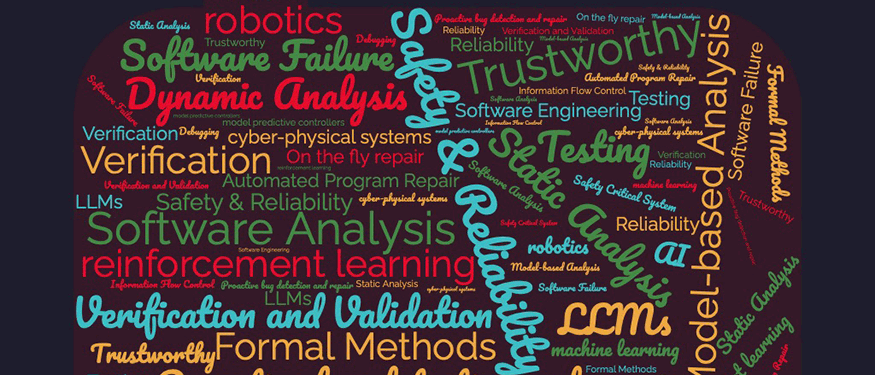The aim of the Trustworthy Systems Lab is to investigate whether software systems can be proven to be trustworthy. Confidence in a system’s trustworthiness is achieved through reliable design, transparency, verification & validation, and various software analysis techniques such as static analysis, applied formal methods, model checking and simulation. Our lab explores multiple dimensions of trustworthiness across software and systems, including human-machine interactions. We address critical aspects such as safety, functional correctness, predictability, security, and privacy. Additionally, we focus on traditional dependability attributes, including integrity, robustness, and reliability. The project can be related to, but is not limited to, the following themes:
- Analyze software artifacts to discover vulnerabilities/defects and provide mitigation
- Safety and security analysis
- Model-driven software engineering for the next generation of safety-critical / embedded systems
- Utilize AI/ML techniques and build intelligent predictive models to optimize the trustworthy operation of various Cyber-Physical Systems (including robotics and automation).
- Automated program repair, i.e., finding and repairing software vulnerabilities and bugs on the fly.
This project/program has a flexible start and length.
Preferred Student Profile
Academic Study Field:
Computer Science,Software Engineering, Computer Engineering, Artificial Intelligence, Information Technology, autonomous systems, or other close fields.
Background and Interests:
- Machine learning / Artificial intelligent for Cyber-Physical Systems (CPS)
- Safety & Security
- Model-driven Engineering,
- Formal methods, Computer-Aided design and Analysis, Verification & Validation
- Programming Languages
- Predictive Maintenance for CPS
